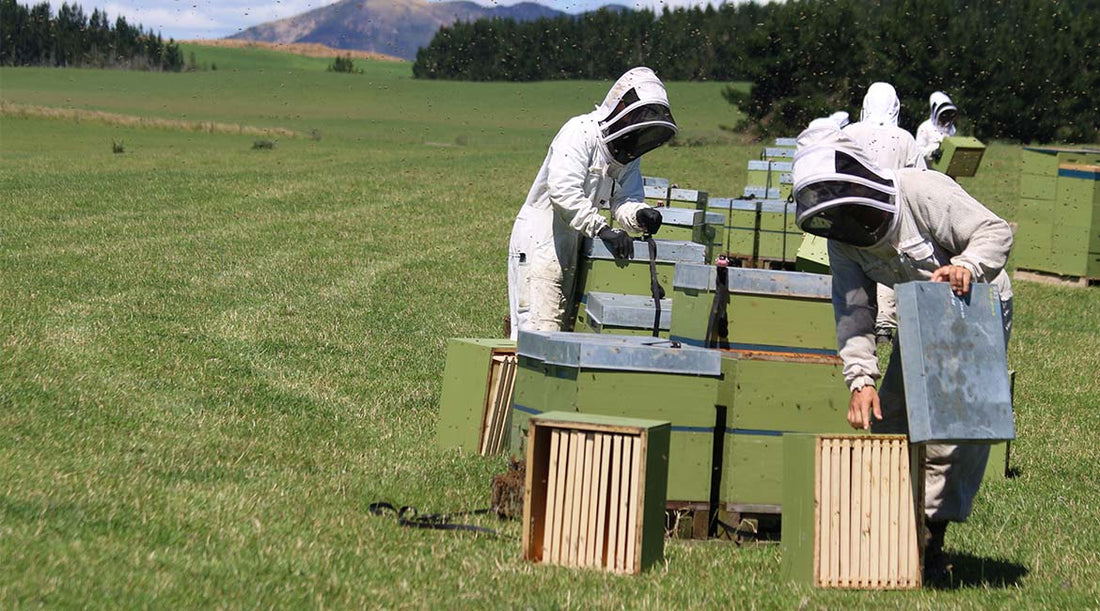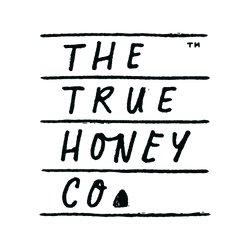
This Bee Awareness Month, we’re celebrating all the things bees do to make our world better, and how The True Honey Co. team of intrepid beekeepers and Queen rearing specialists look after all those millions of bees in our care.
The honeybee is an important pollinator for many New Zealand crops, and provides us lucky humans with honey and bee products like bee pollen and propolis. In return for all those precious natural goodies, our beekeepers take very good care of our honeybee colonies.
As we rely on honeybees, they’re also dependent on us, to keep them housed in cosy, clean hives, and protect them against parasites like varroa mites, diseases like American Foul Brood (AFB) and their archenemy the wasp.
While each hive is unique, they all have common needs that our beekeepers need to take care of.
Plenty to eat
Honeybees need nectar to produce honey, as well as feed the queen and her larvae, create wax and build their honeycombs within the hive. Our beekeepers make sure each hive is placed in an area with abundant food sources of pollen and nectar – so they can stay healthy and have the energy they need to forage far and wide. Hives also need a reliable supply of clean water to drink.
Sun and shade
It’s important to be out of fierce winds, where there is a mix of sunlight and shade. Sunlight signals the bees to start working and forage out in the bush. Aside from the light, the bees are kept warm during the cold and rainy season while the shade protects them from overheating during the summer.
Far from anywhere
Our hives are placed in some of the most remote, pristine areas in New Zealand – far from spray drift from pesticide and diesel fumes from busy roads and trucks. And the only way to access many of these far-flung spots is by helicopter. Hives should still be accessible to our beekeepers, so they can regularly check them, but also away from humans and animals that might disturb the hives. Our beekeepers are also careful to place hives away from areas where hives may have those nasty varroa mites or even nastier AFB.
Checking all the boxes
The True Honey Co. has a high ratio of beekeepers to hives, which means our bees get regular health checks. Every frame in every hive is thoroughly inspected by our beekeepers who are all trained to recognise AFB and supervised by DECA (Disease Elimination Conformity Agreement!) certified senior beekeepers.
Protection against wasps
Honeybees need protection against their stripy foes. Our beekeepers carefully lay baits, which wasps take home to their nests. Some of said beekeepers are specially trained and certified to use this wasp bait, which is of course totally safe for bees.
Unite to survive
Each autumn our beekeepers will replace any sick or tired Queens and give weaker colonies a little extra care. They’ll also combine the hives with the lowest populations, so the extra numbers can help look after each other over winter.
The sweet life
We could sell the clover honey our bees make, but we leave it in our hives for the bees to snack on, because it’s loaded with vitamins and minerals essential for bee health. It also reduces the need for sugar syrup top-ups over the cold months. In fact, we deliberately produce extra honey in the shoulder season, to set aside for feeding the bees in winter and early spring when there aren’t many flowers about, and bees would rather stay home on the couch and watch Netflix. (Oops, no, that’s us.)
We’re lucky to have a dedicated crew of experienced beekeepers. They’ve spent so many seasons with our stripy little friends, they understand their behaviour, almost as if they speak the same language. We call them our bee whisperers.

